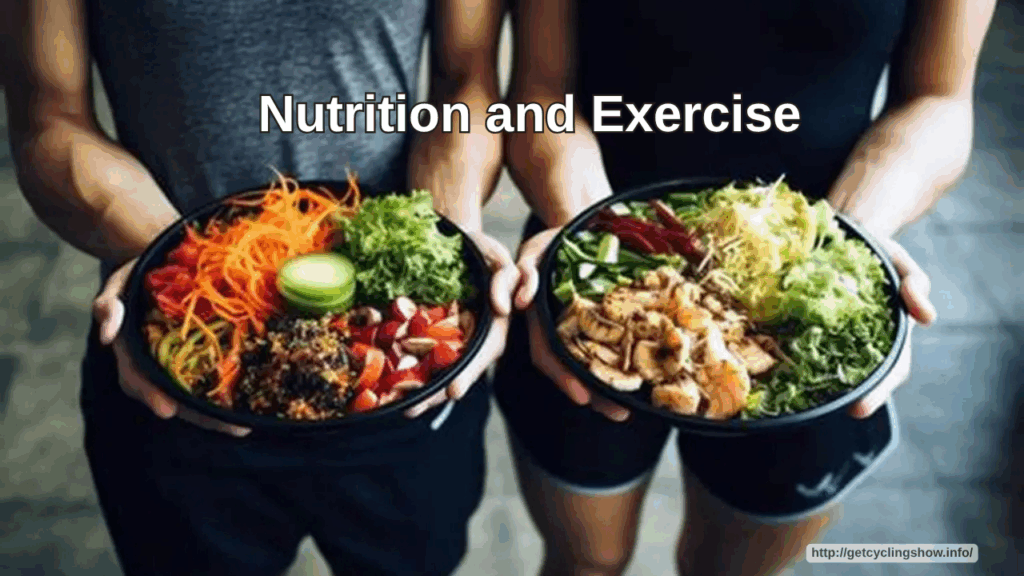
Recovery from addiction is not only about letting go of harmful substances. It is also about rebuilding the body, mind, and spirit that were weakened during addiction. Nutrition and exercise play vital roles in restoring balance, health, and energy during this process. At Get Cycling Show, a holistic, faith-based, and individualized approach helps clients strengthen their physical and emotional foundations naturally, setting the stage for lasting recovery and renewed vitality.
Why Physical Health Matters in Recovery
Addiction can take a serious toll on the body. Nutrient deficiencies, fatigue, poor sleep, and weakened immune function are common after prolonged substance use. As the body begins to heal, it needs proper nourishment and movement to recover.
Focusing on physical health helps individuals feel stronger, think more clearly, and manage stress more effectively. In turn, this supports emotional stability and reduces the risk of relapse. A strong body often leads to a stronger mind, which is why nutrition and exercise are considered essential pillars in holistic recovery programs.
The Role of Nutrition in Healing
A balanced diet provides the foundation for physical and mental healing. The right nutrients can stabilize mood, restore brain chemistry, and improve overall well-being.
Key Principles of Nutrition in Recovery
1. Eat Whole, Unprocessed Foods:
Fresh fruits, vegetables, whole grains, and lean proteins supply the vitamins and minerals needed for energy and healing.
2. Stay Hydrated:
Dehydration can affect concentration and mood. Drinking enough water each day supports detoxification and brain function.
3. Rebuild Gut Health:
Addiction often disrupts digestion. Incorporating probiotic-rich foods like yogurt or fermented vegetables helps restore balance and improve nutrient absorption.
4. Limit Sugar and Caffeine:
These can cause mood swings or anxiety. Replacing them with natural snacks and herbal teas helps maintain calm and focus.
At Get Cycling Show, clients often receive nutritional guidance as part of their individualized treatment plans. By learning how to nourish their bodies, they also learn how to care for themselves in recovery.
The Power of Exercise for Mind and Body
Physical activity is a proven way to reduce cravings, boost mood, and relieve stress. It increases endorphin levels, enhances sleep quality, and improves self-confidence—all key factors in preventing relapse.
Effective Forms of Exercise for Recovery
1. Walking and Cycling:
These low-impact activities build endurance and allow time for reflection and mindfulness.
2. Yoga and Stretching:
Yoga combines physical movement with breathing and meditation, helping reduce tension and increase body awareness.
3. Strength Training:
Building muscle improves energy levels and creates a sense of empowerment and control over one’s body.
Exercise also provides structure and purpose, replacing old habits with positive daily routines. Whether done individually or in a group, movement promotes connection, joy, and progress.
Integrating Nutrition and Exercise into Holistic Care
At Get Cycling Show, recovery is viewed as a complete transformation—physically, mentally, and spiritually. Nutrition and exercise are not stand-alone treatments but essential components of a holistic plan that may also include counseling, mindfulness practices, and faith-based support. This combination helps clients achieve long-term wellness while fostering self-compassion and resilience.
Conclusion
True recovery means more than overcoming addiction—it means reclaiming health, strength, and hope. Through proper nutrition and regular exercise, individuals can heal their bodies, clear their minds, and rediscover their sense of purpose.
If you or someone you love is ready to begin a journey toward complete wellness, Get Cycling Show offers compassionate and personalized support. Reach out today to learn how holistic care, guided by faith and science, can help you build strength in recovery the natural way.